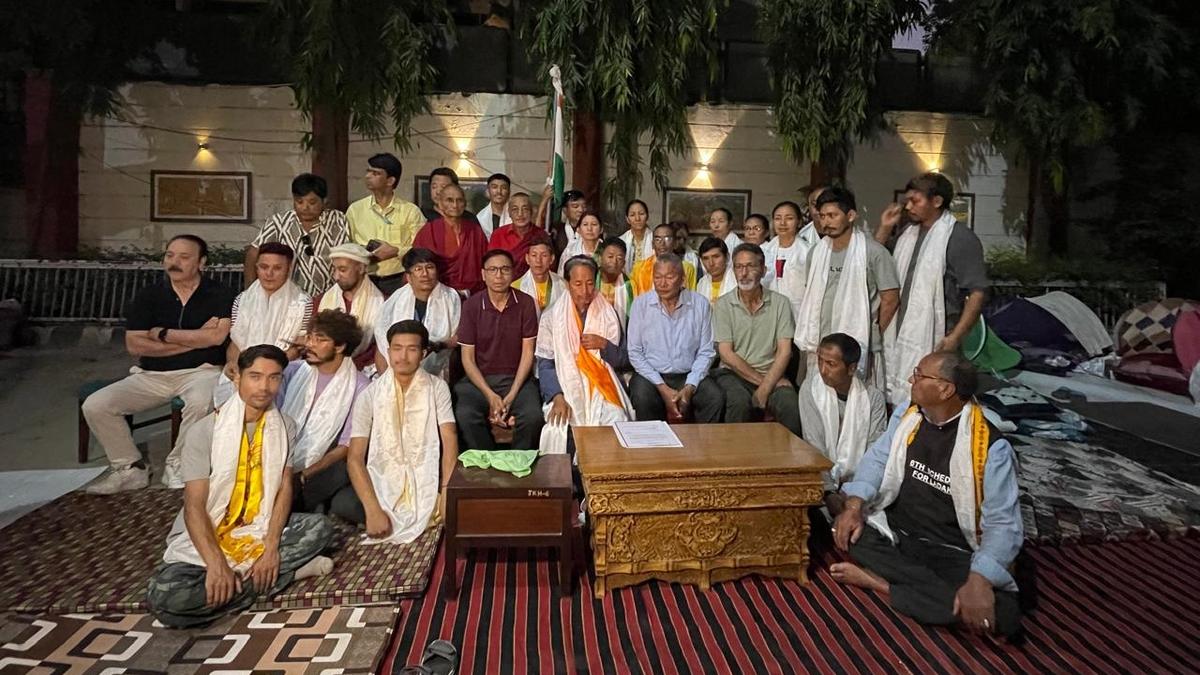 |
|
Climate activist Sonam Wangchuk and fellow protesters from Ladakh have ended their 16-day hunger strike following the Indian government's commitment to resume dialogue regarding their demands for greater autonomy and recognition. This agreement came after the Union Ministry of Home Affairs invited civil society leaders from the region for talks, a move that signifies a potential shift in the government's stance towards Ladakh's concerns.
The Ministry has pledged to convene a meeting of the high-powered committee (HPC) on December 3, led by Minister of State for Home Nityanand Rai. This committee, formed in 2023, was established to address key issues facing Ladakh, including safeguarding its unique culture and language, ensuring land rights and employment opportunities for locals, promoting inclusive development and employment generation, empowering the Ladakh Autonomous Hill District Councils, and examining constitutional safeguards for the region. The committee's terms of reference directly address the four-point agenda that LAB and KDA have been advocating for, a key factor in ending the hunger strike.
The protesters, comprising members of the Ladakh Buddhist Association (LAB), the Leh Apex Body (LAB), and the Kargil Democratic Alliance (KDA), have been actively campaigning for statehood, tribal status for Ladakh under the sixth schedule of the Constitution, employment opportunities for local residents, and separate Lok Sabha and Rajya Sabha seats for the two regions of Leh and Kargil. While previous rounds of talks with the Ministry failed to yield any results, the recent commitment to resume dialogue with the HPC provides hope for a positive resolution to these demands. The protesters have reaffirmed their commitment to these four key points, emphasizing that any discussions must be centered around achieving these objectives.
The hunger strike, which started on October 6, was a significant step in raising awareness about Ladakh's concerns and pressuring the government into action. Participants, including climate activist Sonam Wangchuk and veterans like Tsering Tanba, who have witnessed the alarming effects of climate change in Ladakh, highlighted the need for environmental protection and government responsiveness to the region's challenges. The protest was also fueled by concerns over the region's strategic importance, particularly its location between Pakistan and China. The protesters emphasize that Ladakh, with its predominantly tribal population, deserves recognition for its unique culture and identity, which is reflected in its diverse food and traditions.
This development marks a turning point in the ongoing struggle for Ladakh's recognition and autonomy. The government's commitment to reconvene the HPC and address the four-point agenda presents an opportunity for meaningful dialogue and potential progress in fulfilling the demands of the region's people. Whether these talks will result in concrete solutions remains to be seen, but the renewed dialogue provides a glimmer of hope for a more equitable future for Ladakh.
Source: Climate activist Sonam Wangchuk ends hunger strike after Centre’s invite for talks
